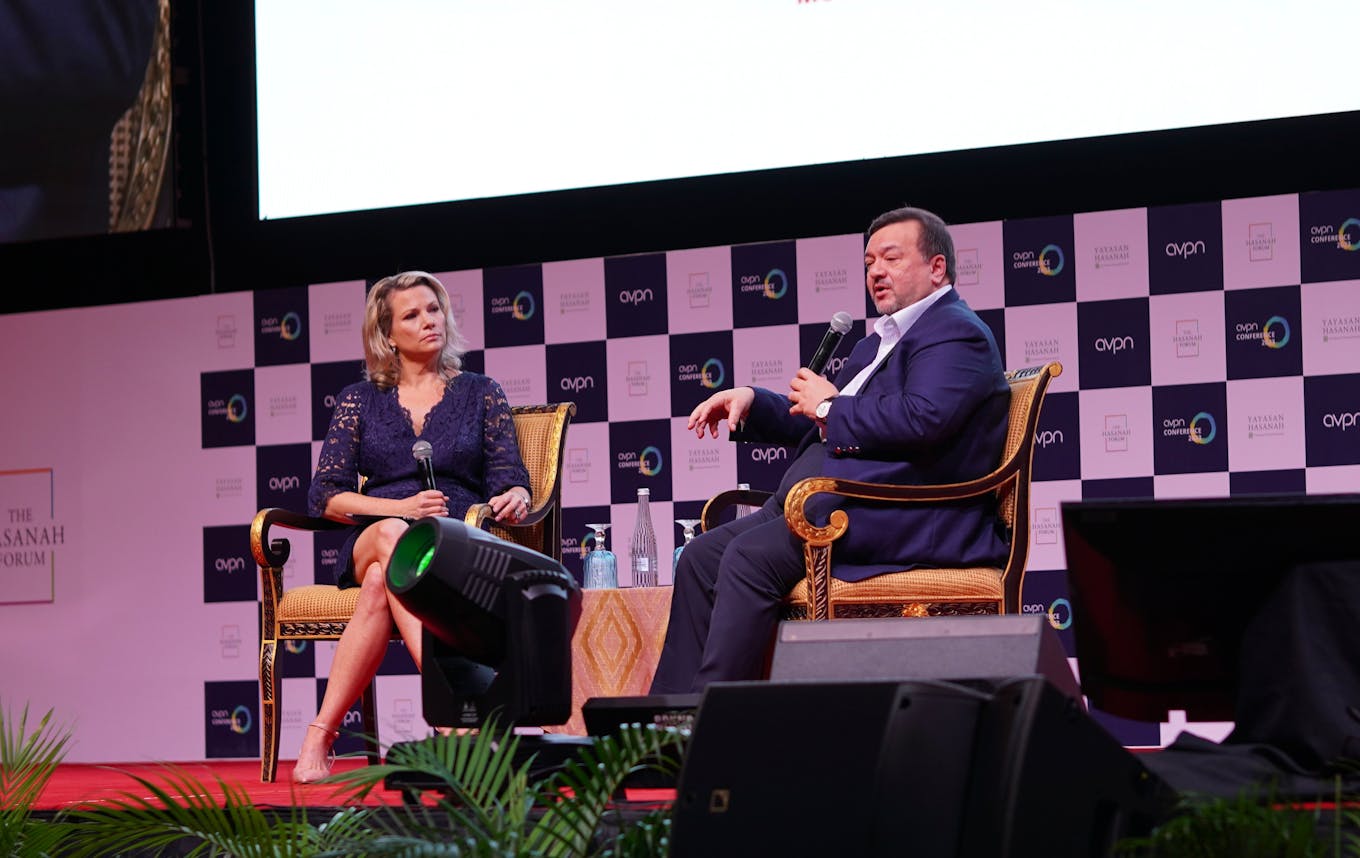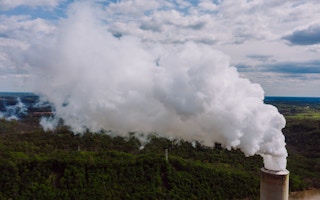Even as Malaysian firms are encouraged to take a step-by-step approach towards achieving environmental, social and governance (ESG) compliance, they should not be disregarding ESG issues, or this could put them at risk of having the country’s largest pension fund withdraw its investments.
To continue reading, subscribe to Eco‑Business.
There's something for everyone. We offer a range of subscription plans.
- Access our stories and receive our Insights Weekly newsletter with the free EB Member plan.
- Unlock unlimited access to our content and archive with EB Circle.
- Publish your content with EB Premium.
In one of his strongest warnings issued to-date, Datuk Seri Amir Hamzah Azizan, chief executive of Malaysia’s Employment Provident Fund (EPF), said the fund will divest from companies not committed to ESG goals.
Speaking at a session on investing in Asia’s energy transition at a forum organised by the Asian Venture Philanthropy Network (AVPN) in Kuala Lumpur, Amir Hamzah said that EPF believes it must push companies towards decarbonisation and a shift to renewables, but at the same time it also commits to “hand-holding” those that need more guidance and support in the energy transition.
EPF has pledged to have a fully ESG-compliant portfolio by 2030 (where all investee companies and external fund managers must comply with core ESG expectations set by EPF) and to have a climate neutral portfolio by 2050. Last year, it launched a set of policies to guide companies in integrating ESG considerations in their investment decisions.
Amir Hamzah acknowledged that EPF’s sustainable investment goals are hard to achieve, and that it had expected a “huge pushback” from investee companies when the targets and policies were first launched. However, he noted that corporate Malaysia generally accepts that climate change is a fundamental problem that it needs to take on.
“The desire to be part of the journey to solve the problem is there,” he said.
“We set up targets that we require our investee companies to meet,” said Amir Hamzah. “This then requires us to be actively engaged with our investee companies so that we can understand what their [carbon] footprint is, and ask them to be transparent about on how they are going to move [towards meeting their ESG targets].”

Amir Hamzah Azizan (right), chief executive of Malaysia’s Employment Provident Fund (EPF) speaking at the AVPN Global Conference 2023 in Kuala Lumpur, Malaysia. Image: Raja Aiman/Eco-Business
As both EPF and investee companies refine their approach towards ESG compliance, Amir Hamzah said that EPF will not put thresholds that are extremely difficult for companies to meet during the early stages.
For example, he said companies could put a time frame for meeting commitments and embed the planned calendar into their business plans so that it becomes measurable. “We can see that then you are on the right track, and that you are beginning your journey of compliance.”
Asia clean energy grid
According to Amir Hamzah, EPF currently manages about US$250 billion worth of assets. As a steward of investment flows, capital deployment and allocation is a key lever that it uses to facilitate the energy transition, he explained.
“Last year, when Malaysia launched its sustainability sukuk, EPF was the biggest subscriber to that,” he said. “Out of the 4.8 billion ringgit that was put out, we took up 3.1 billion ringgit as a firm commitment to provide better support [for corporate Malaysia].”
Sukuks are Shariah-compliant fixed income instruments used in Islamic finance.
Amir Hamzah, who was formerly the chief executive of Malaysian electricity company Tenaga Nasional (TNB), said the energy transition involves shifting from coal to gas and then moving on to more low-carbon sources.
“The reality that exists in Malaysia today is that it is highly unlikely that we will have enough capacity to generate renewable and green energy to manage this process,” he said. “So how do you bridge that gap?”
The answer, according to Amir Hamzah, is in building better interconnectivity between countries in Asia. “We can build better exchanges of energy between those that have [clean energy] and those that do not have it,” he said.
Malaysia is heavily dependent on fossil fuels as a source of revenue and to fulfil its aspirations of becoming a developed and high income nation. Ensuring the country’s move towards cleaner fuels will probably not be easy, said Amir Hamzah. “We have to incentivise investment [in the energy transition] to get people to move,” he said.
Amir Hamzah believes that rich countries should help poorer nations in the shift away from the use of coal, oil and gas. “The developed world must do more to facilitate transitions in the developing world,” said Amir Hamzah. “Call it penance for sins of the past.”
Reducing risks
One of EPF’s strengths as a retirement fund, said Amir Hamzah, is that its investment horizons are very low. “There are a lot of great things that institutional investors [like EPF] can do because the capital can be patient,” he said.
However, he added that the EPF cannot invest in sub-optimal returns and that there should be a focus on reducing risks so that finances can flow better.
Investing in a coal plant, for example, is perhaps not a good idea as the world shifts towards renewables and clean energy. “You might end up with a stranded asset,” said Amir Hamzah. Investors need to factor in sustainability and translate that into investment decisions, he suggested.
“I don’t think impact investments and returns are mutually exclusive,” said Amir Hamzah, who added that there is a “sweet spot” that investors can find.
As an institutional investor, EPF’s primary responsibility is to keep Malaysians’ money safe and provide fair returns for their retirement, but it can also play a role in facilitating the energy transition by partnering with different groups at different investment stages.
“The art is connecting with the right groups,” said Amir Hamzah. “We have no choice but to transition.”










